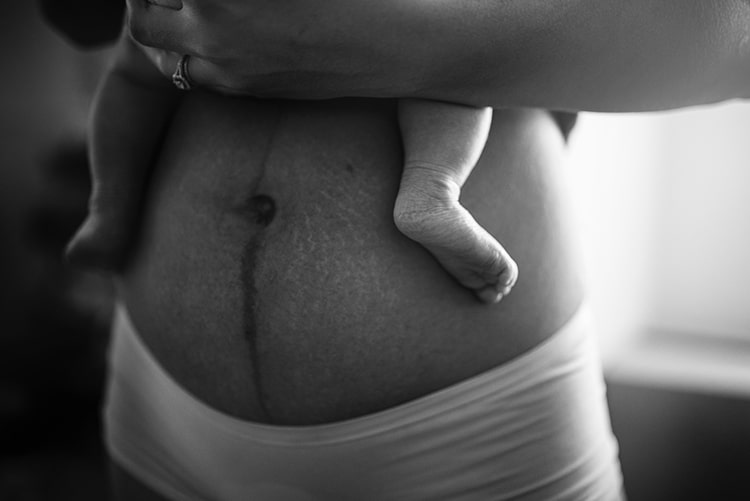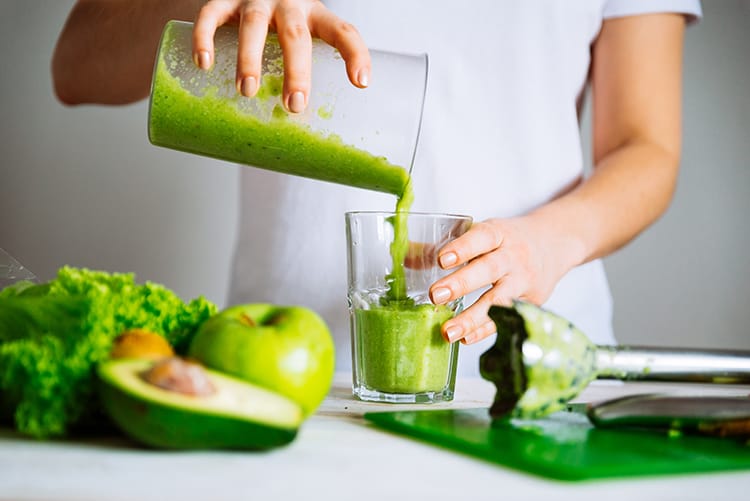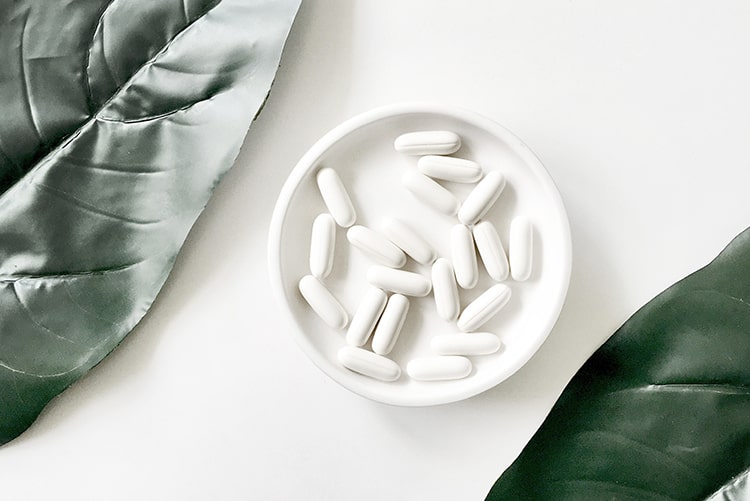It’s completely normal to be nervous about breastfeeding and breast milk supply. The majority of new moms are, so you are not alone. There are likely many questions running through your mind. When will my milk come in? Will I be able to produce enough milk for my baby? Will my milk supply decrease over time? What is colostrum?
It’s okay! Being nervous just means that you understand the benefits of breastfeeding and want to make sure you are able to do this natural, yet sometimes difficult task. Breastfeeding has so many benefits for mom and baby, and my goal as a Holistic Certified Nutritionist is to empower you with knowledge so you feel confident when it comes to feeding your new bundle of joy and to continue breastfeeding as long as you want.
Let’s start with the basics. Nature knows just what to do when it comes to breastfeeding. Allowing your instincts and your baby’s instincts to do what they know to do, is best. Here are some steps to take while in the hospital to ensure your breast milk comes in quickly.
Skin-to-skin contact with baby is important to start the flow of breast milk.

Immediate skin-to-skin contact after delivering is important to start the natural flow of breastmilk. If you don’t get to hold your baby immediately, don’t panic. Things happen! While it’s best for your newborn to be placed on your bare skin right away, it’s not always possible. Just be sure to allow your baby skin-to-skin contact as soon as you are able to.
You will want to unwrap your baby from the hospital swaddle blanket and place your newborn on your bare chest. After a few minutes of skin-to-skin contact help and allow your baby to start nursing. Your baby’s first latch will activate and turn on your milk-producing cells which starts your very first supply of breast milk consisting of nutrient rich, fat dense milk called colostrum.
Feed baby on demand to increase breast milk supply.

Feeding your newborn on demand simply means allowing baby to nurse when they are hungry. Sometimes this means every 45 minutes (give or take) up to a couple of hours. Signals that might mean your baby is ready to eat are getting fussy, sucking on hands/fingers or rooting (turning head toward your breast).
You may think you are not producing enough breast milk at first but this is a completely normal feeling. Feeding on demand will tell your body to keep producing milk often. Eventually, your body will learn to produce exactly how much your baby needs. This can take 6-12 weeks!
Continue frequent feedings for the first couple of months.

In order to help build your supply, avoid feeding on a schedule in the first couple of months. It is important to understand that what you lack in terms of hydration and calories can affect your breast milk production. If you are dehydrated, your supply will decrease. If you are not eating enough nutritious foods, this will also affect your supply. Now, there is no need to panic. It just takes a little bit of planning ahead in order to be prepared and avoid this simple, yet easily overlooked mistake. Here are some tips to ensure you sustain enough nutrition to maintain your breast milk supply:
Related Articles:
- How to Rent Baby Gear on Your Next Getaway
- Breastfeeding Nutrition Advice from a Certified Nutritionist
- Top 5 Baby Products We Can’t Live Without!
Drink plenty of water.

Drink 1-2 cups (8-16 ounces) of water every time you breastfeed to ensure you get enough water. I cannot emphasize enough how important it is to drink to thirst. If you feel thirsty, this means you have waited too long to drink water and hydrate yourself. The suggested water intake is 8-12 cups a day, or half of your body weight in ounces.
Pro Tip: Ensure you have a water bottle within arms reach whenever you are breastfeeding to get the water that you need. The act of breastfeeding increases thirst.
Eat more calories to maintain a good breast milk supply.

This is one that should put a smile on your face! During the breastfeeding weeks, months or years you’ll need to eat an additional 500 calories per day to ensure your body has sufficient energy to produce milk. This often looks like 3 meals and 2-3 snacks in between. Make sure you are choosing quality and nutrient-dense foods and not junk!
Do not be tempted to diet.

Avoid dieting or going on any specific food regime as this may hinder your calorie intake and subsequently your breastmilk supply. While it may seem tempting to lose some of the baby weight, eating REAL, whole foods is more important. Giving your body what it needs to heal and function at its best is enough to allow for it to get to a normal weight for your body type. Check out my breastfeeding nutrition blog to get an idea of the foods to stock your pantry with.
If you notice any abnormal feelings of excessive guilt or radical changes in your weight then please seek help from a professional as you could be exhibiting signs of an eating disorder.
Take a quality multi-vitamin to help increase your breast milk supply.

You were likely taking a prenatal vitamin while you were pregnant. Your body needs vitamins as much after delivery as it did before! Taking a quality multi-vitamin helps to fill in nutritional gaps that aren’t fulfilled with the foods you eat throughout the day. Look for whole food options with plenty of vitamin C, B and folate. All of these will help increase and maintain your milk supply.
These are pretty simple and easy-to-implement tips, but I know it is hard to execute when you are home with your baby. Lack of time and energy is very real. Think about setting up Meal Train to help ensure you have foods available to you as soon as you get home from the hospital. You can also cook various casseroles and freeze them, that way you have ready to eat meals that just need to be thawed and baked!
If you need any assistance creating a meal plan for yourself during the postpartum period, do not hesitate to contact me, Alexxis Torres, or a professional to help ensure you are getting the vitamins and calories to heal your body and produce breast milk.

In the midst of motherhood, Alexxis found passion in the nutrition aspect of pregnancy, breastfeeding, and postpartum health. She set out a goal to help new mothers take care of themselves during pregnancy and postpartum.
Alexxis has been in the health and wellness industry for over 10 years with previous experience in nutrition counseling for weight management, eating disorders, diabetes, heart disease, autoimmune diseases and more.
Alexxis’ career direction was influenced by her past struggles with food, weight and body image. She understands the pain of having a poor relationship with food. Having overcome her health struggles, Alexxis is passionate about helping others do the same.
Alexxis is passionate about helping families thrive by eating whole foods and balancing their busy schedules. Interested in learning more about her services? Check out her website!



I’m struggling with that and now that I’m quarantined I have time to try all the things.
My milk decreased significantly when I went back to work. I increased my intake of oatmeal and drank Mothers Milk tea by Traditional Medicinals and noted an increase again.
Yes to all of the above, but also it takes some experimenting with foods on your own, too. I had an actual low milk supply issue with my son so I tried every remedy out there to get my supply up. Ultimately, I found that all of the suggestions above plus incorporating lots of real food carbs (like potatoes) in my diet was vital. I’ve seen other mommas who don’t need to do this though so it’s probably varies slightly for each woman.